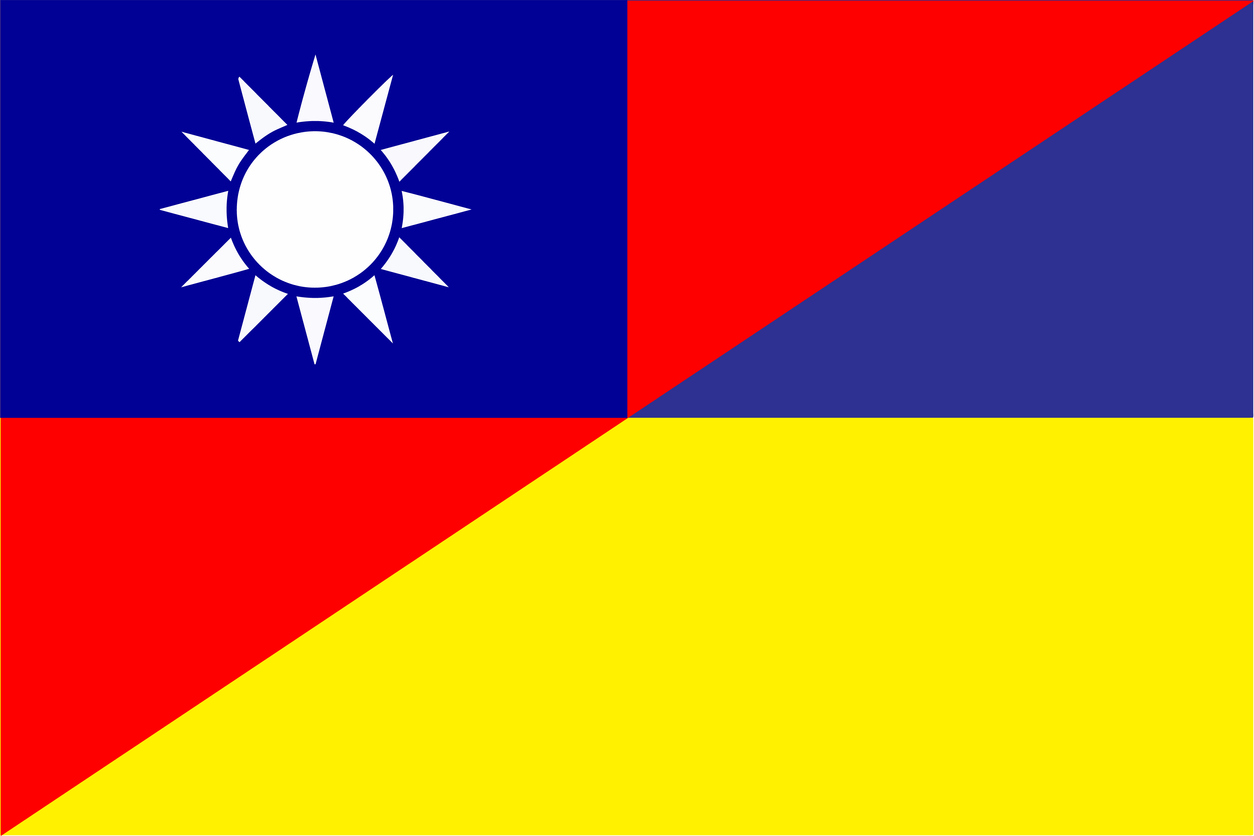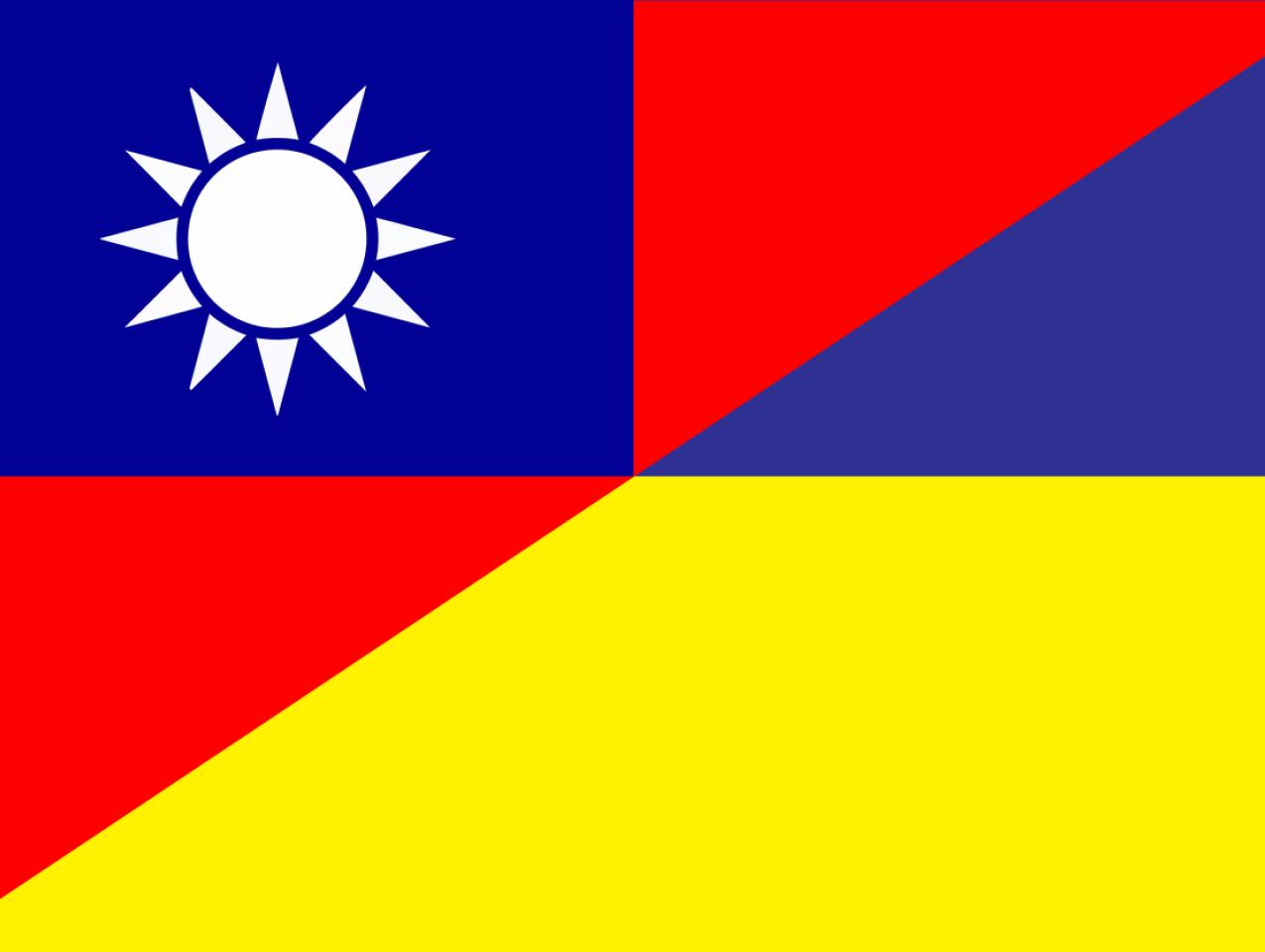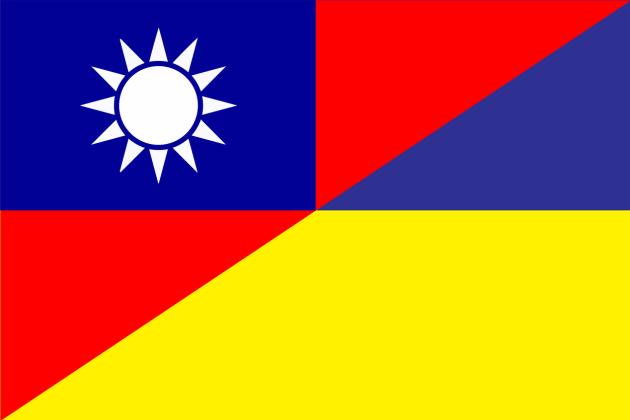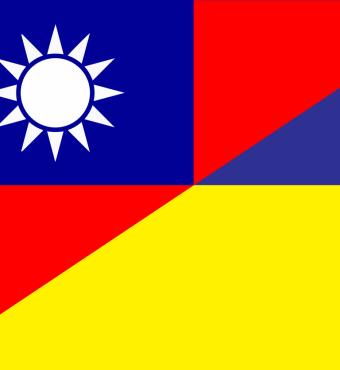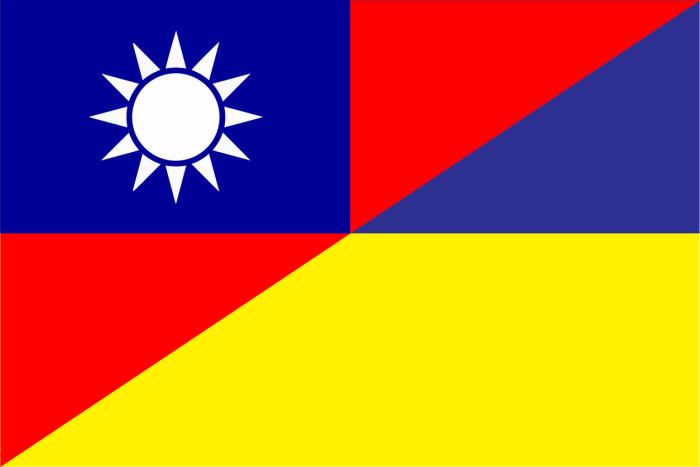In June 2023, the Hoover Institution and Institut Montaigne co-organized a transatlantic dialogue entitled Ukraine and Taiwan: A Two-Front Test of Wills for America and Europe. Led by Larry Diamond, the William L. Clayton Senior Fellow at the Hoover Institution, and François Godement, Senior Resident Fellow at Institut Montaigne for Asia and America, and engaging some 20 high-level US and EU experts, the dialogue took place over two sessions.
The first session, Ukraine: Sustained Transatlantic Unity? moderated by Larry Diamond, focused on Russia’s war in Ukraine, the potential future direction of the war, and the implications of the Ukraine conflict for security in the Taiwan Strait and the broader Indo-Pacific. The second session delved more deeply into Taiwan’s security challenges and the implications for the US and Europe. What follows is a summary of the key takeaways from both sessions.
The first session was guided by three framing questions, as stated below.
What is Ukraine doing well, or not so well, on the military and political fronts, and what are our own responsibilities in these respects?
Successes
- Ukraine has remarkably been able to muster the support that it has to fight the war. Zelensky’s decision to stay in Kyiv—against the initial advice of allies and partners—has been instrumental in creating resolve. Zelensky’s government has also mastered strategic communication to woo parliaments and populations across the globe, framing the war as more than about Ukraine, but about a battle between democracy and authoritarianism and a battle for global security.
- The sanctions response has been unprecedented. So has the uptake of refugees, especially given the politics of migration in the EU. Allies and partners have also spent substantial amounts on military aid. And Ukraine has been granted EU candidacy.
- The EU's political support for Ukraine remains stable.
Failures
- Past failures: Putin’s invasion was a failure of deterrence. The West must consider why efforts to deter Putin from starting the war failed. We must also grapple with our past intelligence failure: how did we mistakenly believe that Ukraine would not withstand invasion and miscalculate its military capabilities?
- Current setbacks: Ukrainian strategic communication has failed to land in the Global South. Ukraine still wants weapons. They had not fully appreciated that support would come with limits—no no-fly zone, no extension to Russian territory, no boots on the ground. There have been no steps toward accountability for war crimes. And there is no clarity on how the eventual reconstruction of Ukraine will be funded.
Lessons learned
- Were the decisions to slowly build up military aid and leave Ukraine without air support correct? We need to assess whether our tactical decisions in Ukraine were correct and identify potential lessons for future conflicts.
- We are able to draw lessons from the early course of the war, but we are not yet able to learn lessons from the end of the war. These will be crucial for future crises.
How can the war be ended, and what would post-war action look like? Is a public debate held while the war is ongoing detrimental to Ukraine's goals? How solid is the political will to support Ukraine, in funding and armaments?
The ongoing conflict
- We are facing a long-term war. We face the risk that Ukrainians will be exhausted before Russia. Putin has the resources and time to dig in.
- We plan for the worst-case scenario. Putin will not stop fighting, especially because of his own need for domestic stability.
- Strategic communication for an ongoing conflict: We must continue to explain the war to Europe and other Western nations. And we must be able to define intermediary goals and successes, including for the counteroffensive, that can be achieved before (and hopefully on the path to) a more comprehensive victory for Ukraine, in which all its territory is liberated. We cannot have an “all or nothing” public discourse on the war: we must discuss the floor, and what it consists of.
- We can take additional measures to instill fear of nuclear escalation in Russia, as currently, the fear is mostly one-sided, coming from the West.
NATO and security guarantees
(NB the session was held before the July 2023 NATO Summit).
- We should discuss potential security guarantees for Ukraine now, and not after the war.
- Participants disagreed on when Ukraine should join NATO, and if NATO membership for Ukraine would bring an end to the war. Advocates of early NATO membership argued that the history of commitments made but not honored by the West indicates we should be skeptical of security guarantees that fall short of full membership. Participants shared that Zelensky’s government was disappointed by the lack of enthusiasm for Ukraine's NATO membership in Western capitals, including Washington. Some participants argued that Ukraine could (very reluctantly) agree to forego the goal of liberating all its occupied territory in exchange for membership. Others worried that focusing too much on NATO membership takes oxygen away from more viable alternatives for ending the conflict. Still, others fear that Russia and China would seize on a future where Ukraine joins NATO to argue, especially to non-aligned nations in the Global South, that the real aim of the conflict has been to undermine Russian security through NATO expansion.
- Some argued that an additional complication is that NATO cannot accept a new member while an active conflict is ongoing. It would require unanimous agreement to change the rules on this point (notwithstanding the example of West Germany in 1955). Russia provokes active conflict over territory in Ukraine and Georgia, for instance, for this very reason. And any conversation about NATO must consider Turkey.
- Participants concurred that the argument claiming "NATO membership would incite Putin to initiate a war" was unsubstantiated. Putin has already invaded Ukraine, so we must move beyond this reasoning.
Ending the war
- The endgame is ultimately a decision for Ukraine. We should not be debating what a peace settlement looks like in public as this could undermine Ukraine’s current efforts. It is up to Ukraine to choose what to say about its territory—and when to say it.
- We must not fall into the temptation of presenting best-case scenarios for ending the war as the most likely scenarios. Even if Russia is pushed back from Ukraine’s borders, the fighting may not stop.
- Some participants argued that NATO membership at the end of the conflict would make it easier for Ukraine to accept an end of hostilities without regaining all of its territory - the question being where to draw the line.
- An armistice may be our best option. We will not face a “friendly Russia” for a long time. Armistice has worked on the Korean peninsula.
- Crimea: Some mentioned that a real threat to Crimea could make a difference. Putin would feel threatened, which could lead to a negotiation (à la Cuban crisis scenario in the Black Sea).
How solid is the axis being built between China and Russia, and where do China's interests lie?
China-Russia relationship
- The relationship between China and Russia was strong before the war. The two countries share a border and a strategically crucial commercial relationship, including through the trade of raw materials and military technologies.
- Russia has had no choice but to turn to China for a lifeline. Western sanctions have denied Russia access to Western technologies, Western markets, and Western currencies. The RMB has replaced the USD as the most traded currency in Russia.
- The relationship between Russia and China is asymmetrical. China is the senior partner in this relationship, and there are limits to China’s support of the war. China currently sees the potential use of nuclear weapons by Russia in the conflict as a redline that Russia must not cross.
- China may harbor ambitions for parts of the Russian Far East. China asked to rename polities in the region, but the Chinese population there is also decreasing, assuaging Russia’s worries about a potential security risk on that border.
Taiwan
- There is no current guarantee of European support for Taiwan in the case of a kinetic event. Some Americans may see the Taiwan crisis as the “second front” of the Ukraine war because it is also about the struggle against authoritarianism, but Europeans do not currently share this sentiment. Trade volume between Europe and China remains high, and the Chinese have been engaged in robust diplomacy to win over European nations.
- Military deterrence in Taiwan must go hand in hand with economic deterrence. We can remind the CCP that mutually assured destruction is alive and well: through the cratering of the global and Chinese economies if they move on Taiwan. We must learn from the sanction response to the Ukraine conflict and perhaps discuss specific sanctions in public as a deterrence measure.
- How can we raise the cost of a CCP invasion of Taiwan to an extent that would deter Xi? We did not do this for Putin.
- Strategic communication: We must make the argument that any move by Beijing against Taiwan would undermine global peace and security.
The second session of our dialogue, Taiwan: Long Game or Endgame? moderated by François Godement, Institut Montaigne’s Resident Senior Fellow for Asia and America, considered relevant military implications for China’s PLA and Taiwan’s defense, and the broader impact of international support to deter the outbreak of war. The session was guided by three questions, as stated below.
What are the principal lessons for Taiwan from the Ukraine conflict?
The nature of the conflict
- The direction of the discussion was overwhelmingly towards a hot crisis involving direct PLA action against Taiwan and leading to an invasion or a surrender on China’s terms. Although lower levels of coercion, such as a blockade were also discussed, they did not appear as the most likely form of action by China, as they would involve the same international costs without yielding predictable results. There was no prediction on how Xi Jinping would assess whether a window of opportunity exists, although the advent of a fourth term at the helm was mentioned. Could Xi Jinping miscalculate? The diminishing returns of China’s domestic economic policies were in fact more conducive to a conflict.
Build up military capacity
- Enhancing training and resilience: As early as 2014, NATO, the US, and other European states cooperated to train the Ukrainian military: likewise, Western powers could help in the training of Taiwanese soldiers, and invest in strengthening the Taiwanese military in anticipation. With the increasing possibility of a conflict with China, Taiwan needs to prepare intelligent tactics and asymmetric capabilities. Recruitment (professionalization) and retention (including through pay of soldiers) will also be important.
- Making innovative use of commercially available tech: The Ukrainian military innovatively used commercial goods and other low-value items (i.e., modified off-the-shelf drones). Thanks to this capacity, Ukrainians managed to resist Russian high-value weapons (i.e., aircrafts, hypersonic missiles). This is something Taiwan should look at. Utility of precision weapons, low-value, low-cost Javelins and Stingers (anti-tank), HiMARS, used against high-value platforms. If Taiwan can master these, it would pose significant challenges for China’s PLA.
- Rely on asymmetric tactics and capabilities: A few participants highlighted the importance of not over-estimating the capacity of the Taiwanese: the gap (in terms of military capacity and population) between Taiwan and China is much wider than the one between Ukraine and Russia. And in any case, Taiwan will need to withstand the first blow. Resupply of the island will be more difficult once the conflict has started because of the lack of land borders, even though Japan could play the role of “Taiwan’s Poland”.
- Cyber threats will play a bigger role in Taiwan.
Plan an effective communication strategy
- Demonstrate the will to fight: A key element of Ukraine’s resilience is President Zelensky’s strategic communication, including gaining support and resources from allies. Just like the Ukrainians, the Taiwanese need to display their determination to fight.
- Rely on domestic support: President Tsai Ing-wen still enjoys strong democratic support, even after seven years in power. She should rely on this solid basis.
- The government needs to boost Taiwanese morale: such a message of willpower needs to be sent not only to the rest of the world (and especially China), but more importantly to the Taiwanese themselves. The Taiwanese people are not showing as much determination to defend their country as the Ukrainians.
- Wartime propaganda: Taiwan should be able to properly communicate with its people on the evolution of the conflict.
- Keep communication lines open: Communication lines, including under-sea cables, may be quickly targeted by Chinese forces. Taiwan needs to prepare alternative ways of contacting the outside (eg. satellite communication). Starlink could be an option but other types of lower-orbit satellites may be experimented (already the case in Taiwan).
Stockpiling resources
- Anticipate supplies: Because of its geography, Taiwan is vulnerable to blockades. The Chinese military could easily block any shipment of supplies to the island. Therefore, Taiwan needs to massively store military equipment (ammunition), food, water, and energy, and build sufficient infrastructures for such large-scale storage.
Seeking and relying on allies
- The importance of Japan: Some participants speculated on the direct intervention of Japan in case of a conflict because it could be considered an existential crisis. The use of Japanese submarine forces in the Taiwanese Strait could help counter the Chinese. If China manages to keep the US and Japan out, we (the West) lose. A key difference between Taiwan and Ukraine is that beyond sustaining the first blow, Taiwan needs others—the US, Japan, allies—to join the fight and not merely give support.
What is the PLA learning from Russian operations against Ukraine?
Speculations on China’s strategy/cross-strait scenarios
- Blockade vs. Blitzkrieg: Some predict that the Chinese maritime and aerial forces will conduct a blockade of Taiwan. After several days of combat, the Taiwanese military and civilians would be out of resources, and be forced to surrender. Others suggest that China would conduct a brief and intensive attack on the island (blitzkrieg type), thus preventing Western allies from helping Taiwan. If Russian forces had managed to seize Kyiv in the first days of the conflict, the outcome would have been very much different.
- Learning to assess readiness and will to fight: Unlike Russia, China should not make the mistake of miscalculating the capacity of Taiwan. Putin did not expect that the Ukrainians would resist, but they did. Chinese experts are extremely curious to understand the high morale of Ukrainian forces.
- Resourcing/inventory of munitions: In case the Chinese do not succeed with a short offensive, Taiwan should have enough strategic resources to hold a long fight. Looking at how to sustain a protracted struggle.
- Unit coordination: Since the start of the war, Russia has had to refocus on divisions instead of brigades to improve the coordination of units. China has been doing precisely the opposite, with light mobile units, but it might assess that the Soviet legacy of its centralized organization of forces is a weakness to be addressed.
Strategic deterrence
- Nuclear blackmail: For Russia, nuclear deterrence appears as one of Putin’s few successes. Some point to the increase in Chinese investment in nuclear weapons. The threat of using their nuclear capacity could prevent Western powers from entering the conflict.
- Non-nuclear capabilities: Russia uses bombers and hypersonic missiles as means of deterrence. Deterrence is not only nuclear.
Regime stability
- Putin and Wagner: Despite the Wagner rebellion in late June 2023, Putin still holds firm control over his armed forces.
- Maintain order: President Xi will be vigilant of any internal divisions. Officials need to maintain war optimism amongst Chinese troops. Mutinies are unlikely but remain possible during wartime. Moreover, if lower-ranked military officials do not dare to question Xi's judgment, misperceptions about the war's outcome could ensue. Japan once entered a Pacific War its top Navy officials knew they were unlikely to win.
Unbalanced warfare
- The Chinese know they would have the upper hand in a bilateral conflict with Taiwan. So did the Russians when they first attacked Ukraine, but Ukrainian forces resisted through unconventional means (i.e., modified drones) and with outside support. The Chinese could prepare proportionate reactions to such methods. In their view, small nations are not independent, and Beijing considers them to be part of a broader sphere of influence of great powers. Also, war crimes are acceptable to China and may be used as a tactic.
How do the US and the EU approach the sanctions issue in case of an acute conflict over Taiwan?
Display determination & deterrence to counter war optimism
- An ambivalence regarding sanctions toward China: Although everyone agreed about the need for public sanctions on Russia, the consensus did not apply to China. For some, sanctions in themselves might not be a sufficient deterrent to Xi (they were not for Putin). For others, because of two factors: the fear that negative moves actually incite. China to move even more aggressively; the risk of following American choices, and a European sense of vulnerability towards the Chinese economy. The German coalition is notably split on this issue. French President Emmanuel Macron’s comments may have indicated a fear shared more by the European side of being pulled into a conflict. Even the 2022 hard-hitting sanctions against Russia had been a difficult test for the European Council. The stakes with the Chinese economy were much greater.
- Western response: Yet, just like Taiwan needs to prove its willingness to fight, Western democracies must show that, should China conduct an offensive on Taiwan, they would react firmly, either through military participation, or more likely, through economic sanctions. China’s economy relies on Western economies as much, if not more than Western economies rely on China. Economic sanctions would be critical.
- Types of sanctions: Remove China from the SWIFT system, target certain sectors, exclude these from public procurements, and use extradition treaties as a tool. Beyond this, some form of mutually assured destruction of both economies should be made clear to Xi Jinping should he choose to embark on a conflict.
- Target Xi Jinping’s optimism: A harder push should be made to deter any hope to win a war because “deterrence is far preferable to a conflict”. Wars start with an aggressor’s optimism (regarding its expected victory, the speed of war), not out of anger. In addition, when Chinese leaders look at sanctions, they recall Tiananmen and Hong Kong, noticing that sanctions in the end do not last… Advance publicity matters.
Discussion and cooperation
- Different perceptions: Europeans have a comparatively weaker emotional attachment to Taiwan than Americans, except for certain cultural elites and democracy activists. They view it more through a geopolitical lens. In contrast, the United States has a more direct human connection to the island. Europeans are reluctant to proactively consider the significant consequences of a Taiwan conflict, partly due to the EU's limited military capabilities. There is widespread fear that preparing for the aftermath of an actual war. could escalate the conflict.
- Work through divergences: Even though the EU and the US perceive the threat differently, this is key to a healthy transatlantic relationship. There may be a sense (to wit: Macron’s plane interview in Politico, later corrected by other declarations) that Americans want to coerce Europeans in the conflict, or want to provoke escalation with China. But at the same time, threat perception in Europe has changed with the pandemic, and with China’s economic coercion of one of its Member States (Lithuania).
- Maintain a united front: Division on the sanctions issue sends the wrong message to China. The Chinese are currently betting on the EU’s lack of determination because should there be a Council discussion on sanctions in the near future, such measures would not be adopted. European instances have a big role to play in engaging discussions (notably the European External Action Service for coordination). Most participants agreed that conversations should happen now. There is no such thing as discussing the problem too early. Discussion formats need to be understandable and flexible.
- Be firm on approach: The discourses deemed “radical” before the Ukraine conflict have become mainstream with the reality of the conflict. Adopt a “radical” attitude and warn governments. Offer concrete measures, and be clear on what sanctions should be applied.
Build economic resilience
- Capacity: The EU needs to prove it has, beyond the willingness to decide on sanctions, the capacity to implement them. Build resilience and prepare local economies for the sanctions fallout. The consequences of the Covid lockdown would be dwarfed in comparison to the effect a Chinese or allied blockade would have on Western economies.
- Withstand vulnerabilities: Supply chains are extremely vulnerable. Governments and companies need to cooperate in their protection. Relocalizing could be a solution. Investment in Taiwan appears riskier, (although the semiconductor industry is a counterexample).
- Reduce dependencies: Some companies overly rely on the Chinese market (for investment, German automakers and chemical industry, for sales, French and European luxury goods) the US is dependent on Chinese pharmaceuticals; the green transition relies on Chinese technologies…
Lessons for neighbors
- Japan could at the minimum be to Taiwan what Poland has been to Ukraine. Indeed, European countries, especially neighboring states such as Poland, had to suddenly deal with the large-scale flow of Ukrainian citizens. But Japan’s military action was also necessary. Similarly, Asian countries like Japan could start preparing infrastructure to be able to welcome Taiwanese refugees adequately, and quickly integrate them, besides preparing to maintain supply chains.
- Sanctions - followed by Chinese counter-sanctions—are not in and of themselves enough of a deterrent. China had observed in the past their limits in other cases. China may assess that it has a strong advantage in escalating sanctions dynamics with Europe.
Institut Montaigne and the Hoover Institution extends their gratitude for the excellent points made during the dialogue and to the participants for their time. The list of participants includes but is not limited to: Reinhard Bütikofer, Larry Diamond, Mathieu Duchâtel, James Ellis, Liana Fix, Francis Fukuyama, Alexander Gabuev, Bonnie Glaser, Gustav Gressel, François Godement, Bart Groothuis, Robert Haddick, Ryan Hass, Jakub Jakobowski, Michel Duclos, Ivan Kanapathy, Elaine Luria, Michael McFaul, Charles Parton, Yurii Poita, Matthew Pottinger, Orville Schell, Ben Schreer, Kathryn Stoner, Kharis Templeman, Glenn Tiffert, Abigaël Vasselier, Gudrun Wacker, Georgin Wright, and Joel Wuthnow.
Both institutions also thank Frances Hisgen (Hoover) and Louise Chetcuti (Institut Montaigne) for their help in organizing the dialogue.







